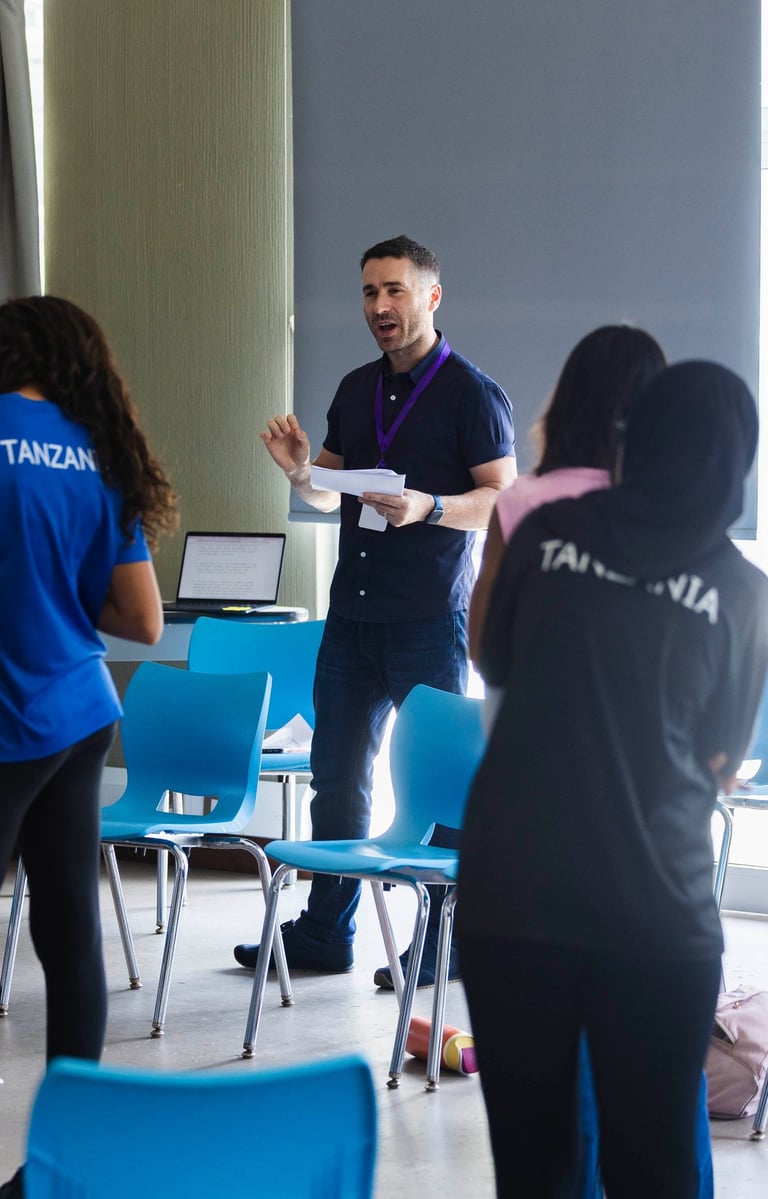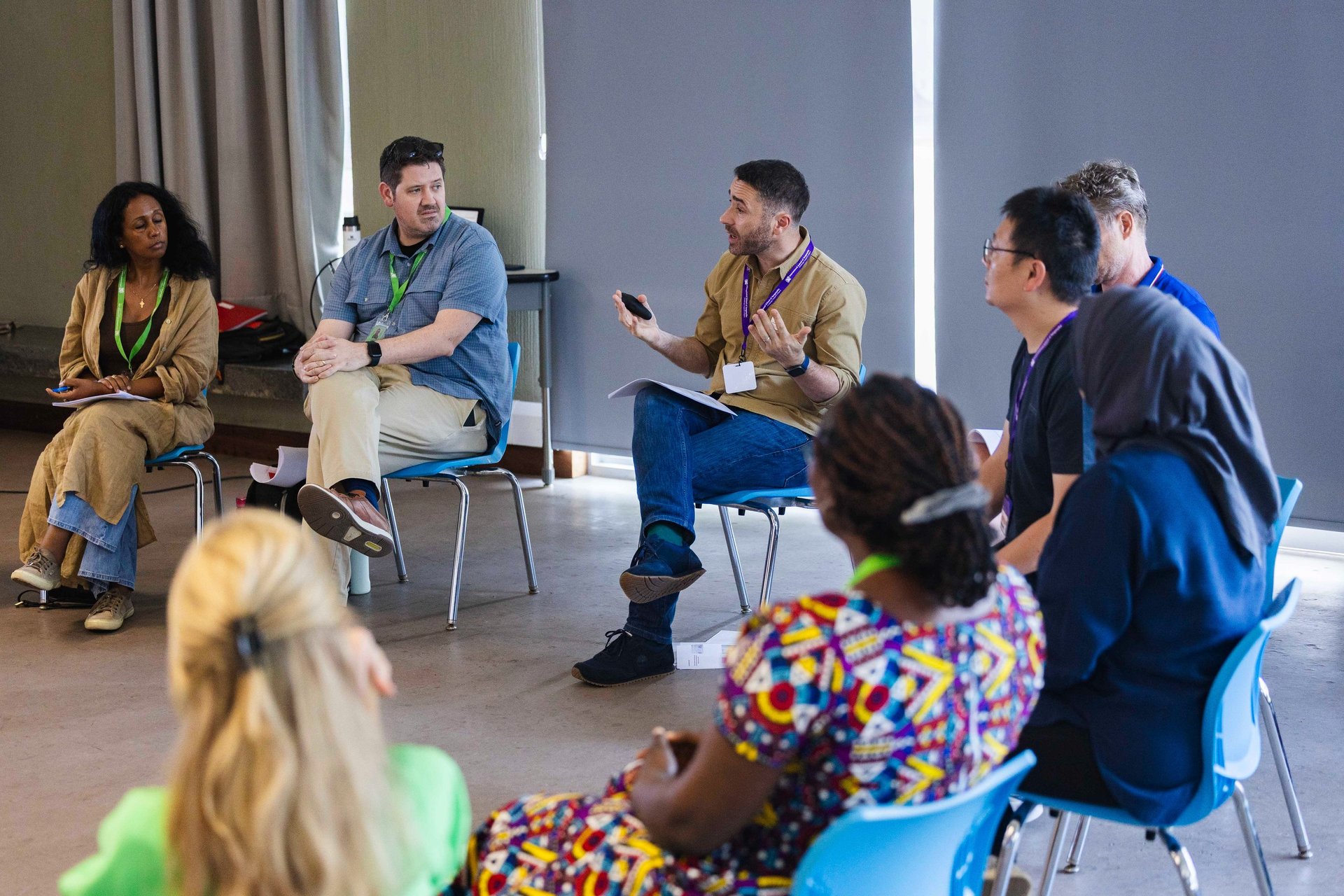
Is your international school looking to upskill staff and develop a happier, healthier culture?
Bringing accredited restorative practices training to international schools in the Middle East and Africa
Transforming international educators into restorative practitioners
My name is Alistair Goold and I am an international educator with 19 years of experience on three different continents. I am passionate about the restorative approach in education and I hold a Master of Science in this field. Often, international teachers come from a range of diverse cultural backgrounds and this can result in conflicting approaches, philosophies and methodologies with regards to school discipline. I am proposing a programme to train staff and lay a foundation that intersects the restorative approach with the unique social and emotional needs of Third Culture Kids, providing an evidence based toolkit to establish healthier, happier international school communities. I am fully trained and licensed with the International Institute for Restorative Practices.
I provide quality professional development, ranging from a 2 hour taster session to several days of deep learning, culminating in individuals gaining formally recognised university credit that can be blended with further online post graduate study. The programme is primarily aimed at those in education - as well as bespoke workshops for parents - but the underlying principles can be equally applied by anyone who works in a community context.
Often international schools struggle with the professional development budget, resulting in many teachers losing out on essential training and growth. Rather than send staff on expensive international trips to receive training, I am willing to travel to your location and host this event on site for a cohort of up to 25 delegates (or 50 if opting for the 2 hour taster). This ensures excellent value for both your staff and your budget.
I am a member of the European Forum for Restorative Justice where I am on the Register of Restorative Trainers and Consultants. I also serve on the Education Working Group developing guiding standards, supporting schools, creating resources and training to promote a holistic, restorative approach to education. My academic work has been published on various platforms, including On the Horizon journal of education and the International Journal of Restorative Justice. I also peer review academic manuscripts on restorative justice for the International Journal of Education and Research Open (IJEDRO).



Restorative Practices are a relationship-centred approach to building community, resolving conflict, and repairing harm. Rooted in the philosophy of restorative justice, these practices emphasise empathy, accountability, and mutual respect, creating environments where individuals feel valued and heard.
At their core, Restorative Practices focus on proactive relationship-building and collaborative problem-solving. They are not just about addressing harm after it occurs but fostering connections and shared understanding to prevent conflict. Tools like restorative circles, affective statements, and structured conferences enable open communication, allowing everyone involved to share their perspectives and work towards meaningful solutions.
In schools, Restorative Practices improve classroom culture, reduce disciplinary actions, and strengthen student-teacher relationships. In workplaces, they foster collaboration, resolve disputes, and enhance team dynamics. Communities and families also benefit, using restorative approaches to build trust, repair relationships, and create safe, supportive spaces.
Unlike punitive systems, Restorative Practices aim to address the impact of harm, focusing on repairing relationships rather than assigning blame. By empowering individuals to take responsibility and engage in authentic dialogue, these practices build stronger, more inclusive communities.
Whether addressing conflict or strengthening connections, Restorative Practices provide a pathway to healthier, more compassionate relationships, making them a transformative tool for schools, organisations, and communities alike.
What are Restorative Practices?
Training Events
Two Hour Taster
This two hour workshop is the perfect soft introduction to restorative practices, providing a basic overview of the key concepts and ideas. Unlike the full day events, this interactive session can be ran with large groups, making this an ideal whole staff PD event. This introductory workshop is suitable for all staff members, from teachers to administrators, and provides an accessible entry point to the restorative practices framework. By attending this session, schools can begin to lay the groundwork for a more connected, empowering, and restorative community.
Day One and Two
During this two day event, participants learn fundamental theory and practices for engaging with students, staff and parents in their school setting. Staff will learn a range of strategies they can use every day. They will learn how to set high expectations while being supportive. They will practice how to provide direct feedback and how to ask questions that foster accountability. They will also learn the most effective methods for conflict resolution.
Restorative Practices for Educators, Using Circles Effectively and Restorative Justice Conferencing
These professional learning opportunities will provide participants with the skillset needed to strengthen relationships and respond to conflict within the classroom, community or at any level in your organisation
Day Three
The third day will be devoted entirely to teaching attendees to facilitate restorative circles. Circles are an essential process for building social capital, resolving social problems and responding when harm occurs. Circles create a positive learning environment. Staff will learn by participating in circles with other attendees, taking turns to learn how to facilitate. By the end of the day, teaching staff will be prepared to return to their classrooms and run an effective academic or social circle.
Day Four and Five
In this event you'll learn the fundamentals of leading formal restorative justice conferences that engage those who have caused harm, those impacted, and the broader community. Applicable across education, criminal justice, and other organisational settings, this course equips you with essential tools to create deeper understanding and accountability. Through role play and guided practice, you'll be prepared to implement restorative conferencing to address incidents, build empathy, and restore justice.
Restorative Parenting
This additional event focuses on bringing the restorative toolkit to the parent community, bridging the gap between school and home whilst involving all stakeholders. Ranging from 2-4 hours, this workshop can be ran in one sitting or over two afternoons or evenings. This event offers insight into how to handle international transitions using restorative methods. Parents often look to schools for guidance and appreciate the support when it comes to enhancing relationships at home.
Get in touch
For more information on Restorative Practices or our course options, fill in the following form or send an email to support@restorative360.com
